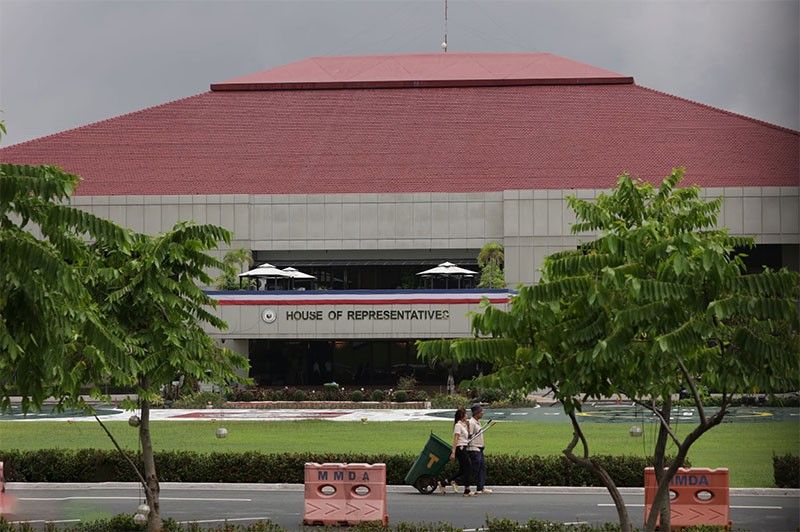
Upgrade to High-Speed Internet for only ₱1499/month!
Enjoy up to 100 Mbps fiber broadband, perfect for browsing, streaming, and gaming.
Visit Suniway.ph to learn
Ex-justices, legal experts weigh in on SC ruling
MANILA, Philippines — While it may be legally correct, the Supreme Court (SC) decision on the impeachment case against Vice President Sara Duterte is “rather unfair,” former SC associate justice Adolfo Azcuna said.
In a statement yesterday posted on Facebook, Azcuna said the High Court’s decision gave a “new definition” to what constitutes the initiation of an impeachment complaint.
“Recall that in the Davide case, the Supreme Court defined initiating an impeachment complaint as putting it in the order of business and referring it to a proper committee. This was not done to the three earlier complaints in this case,” he said.
“The new definition, however, would now cover a situation where the complaints were not referred to a committee and, after the lapse of the time to do so, archived, and thus, the Supreme Court said, ‘effectively dismissed,’” Azcuna added.
He noted that the House of Representatives relied on the prevailing definition at the time, which was also based on a previous SC decision.
The lower chamber archived the first three complaints against Duterte and instead decided on a fourth complaint.
For Azcuna, it would be unfair to apply the new definition on the complaint “as it was precisely adopted in reliance on the Supreme Court’s then prevailing definition.”
He urged the High Court to issue a supplemental resolution and apply the Doctrine of Operative Facts, wherein “the action and things done will be treated as valid, and the new definition will be applied prospectively, i.e. to future cases.”
“In this way, I respectfully submit, the people’s unwavering demand for accountability now will be served, and the trial in the Senate can still, and finally, proceed forthwith,” he added.
For law professor and former lawmaker Barry Gutierrez, the SC decision “completely rewrites how we’ve understood and implemented impeachment, both from a historical and constitutional law perspective.”
He said the decision imposes new procedural requirements and standards of evidence on the impeachment process and pushes it “towards a more judicial and less political process by explicitly requiring ‘impartiality.’”
“These are areas prior decisions have avoided in deference to the House’s constitutional role,” he said.
“One thing is clear, by barring the impeachment on a procedural issue, the Filipino people are also barred from seeing for themselves the truth as regards the very serious charges against the VP,” Gutierrez added.
On Friday, the SC unanimously voted to declare as unconstitutional the Articles of Impeachment lodged by the House of Representatives against the Vice President, citing violation of the one-year rule under the Constitution as well as her right to due process.
But in its decision, the High Tribunal also emphasized that it is not absolving Duterte of any of the charges against her and that any subsequent impeachment complaint may only be filed starting Feb. 6 next year.
Other law experts also slammed the SC decision, calling it erroneous and lacking legal basis.
‘No legal anchor’
In a legal opinion posted on his Facebook account, law professor and former Far Eastern University Institute of Law dean Melencio Sta. Maria Jr. questioned the SC’s interpretation of the Constitution’s one-year ban on the initiation of impeachment complaint.
Sta. Maria specifically questioned the SC’s declaration that since the previous Congress did not act on the first three endorsed impeachment complaints against Duterte, the complaints were already deemed “terminated or dismissed” upon the chamber’s adjournment last Feb. 5.
Sta. Maria said such position “has no legal anchor” as the first three complaints were merely filed but were never referred by the House to its committee on justice and thus, there was no act of “initiation” of impeachment proceedings.
“Filing but no referral means no ‘initiation.’ How could archiving or non-action (after the filing) up to the termination of day-to-day business of the 19th Congress be considered a cause for ‘dismissal’ when the necessary ‘referral’ to complete the ‘initiation’ stage did not happen? How could there be a ‘dismissal’ of a proceeding which was never initiated in the first place?” He said.
“The referral part is very important so that the mere frivolous and numerous filings of complaints could not prosper. Instead of considering the non-action or archiving up to the termination of the 19th Congress as cause for ‘dismissal,’ would it have been better to treat the three complaints that were filed (without referral) as just mere scraps of paper without any legal significance at all?” he added.
Three impeachment complaints were filed by private citizens and groups against Duterte in December last year but were never tackled in the plenary or referred to any committee. Instead, the House, with 215 votes, approved a fourth impeachment complaint on Feb. 5, the last session day of the 19th Congress. This was immediately followed by the transmittal of the Articles of Impeachment to the Senate on the same day.
Ephraim Cortez, president of the National Union of People’s Lawyers (NUPL), said the House acted within the bounds of the Constitution, contrary to the SC’s assertion.
“It [House] had the option to refer the three prior complaints to the committee on justice, or to endorse the fourth complaint. In opting to endorse the fourth complaint, the House merely exercised its discretion granted by the Constitution,” Cortez said in a statement on Facebook.
No violation of Sara’s rights
Cortez also slammed the SC declaration that Duterte’s constitutional right to due process was violated when she was not given chance to be heard on the Articles of Impeachment.
Cortez said Article XI Section 3(4) of the Constitution was clear and unambiguous, thus it should be applied “literally and without any qualifications.”
Article XI Section 3(4) of the Constitution states: “In case the verified complaint or resolution of impeachment is filed by at least one-third of all the members of the House, the same shall constitute the Articles of Impeachment, and trial by the Senate shall forthwith proceed.”
“Under the circumstances, the House did not violate the Constitution when it endorsed the Articles of Impeachment without allowing Sara Duterte to respond. It merely followed what the Constitution mandates them to do,” Cortez said.
“Since the fourth impeachment complaint was properly initiated and endorsed, and upon its transmission, the Senate properly acquired jurisdiction to constitute itself as an impeachment court,” he added.
Public interest lawyer Jesus Falcis pointed out that even assuming that the first three impeachment complaints were deemed dismissed with the adjournment of the 19th Congress on Feb. 5, such circumstance cannot give rise to the one-year bar rule against the fourth impeachment as the latter’s transmittal to the Senate happened in the afternoon of Feb. 5, before the adjournment of the 19th Congress in the evening on the same day.
Falcis also slammed the SC for inserting additional requisites for initiating an impeachment case, saying the move was tantamount to “micromanaging it and violating the separation of powers.”
“What the SC did is worse – it is effectively amending the Constitution a.k.a. committing the legal sin of judicial legislation,” he added.
Among the requisites enumerated by the high tribunal was for the respondent to be given a chance to be heard by the House before the Articles of Impeachment are transmitted to the Senate.
“The Supreme Court is not empowered to insert more procedures from the time that one-third House members sign an impeachment complaint to the transmittal of the same constituting the Articles of Impeachment to the Senate,” Falcis said.

 15 hours ago
2
15 hours ago
2



